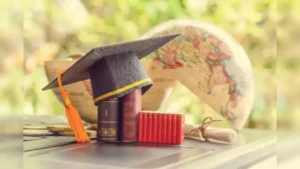Schools may start, they may not – the persistent confusion and fear about their children’s education are driving parents crazy. Perhaps that is why most of them are now turning towards the private tutors to make sure that their children don’t fall back on the education going on.
As the schooling dilemma continues to daunt millions of parents, some with the means to front the steep costs are hiring private educators and tutors, options experts say few can afford and will likely widen an already glaring education gap.
Some systems, like those in Los Angeles and San Diego, have already announced that they will go online, but countless others are still grappling with how to proceed among in-person learning, online instruction or a hybrid of the two.
Agencies that place professional educators — who are certified licensed teachers — and tutors have reported a sharp rise in interest over the last few weeks, said Teresa Lubovich, a representative of the National Tutoring Association who is the owner of Poulsbo Tutoring in Washington state.
Some parents are worried about sending kids back in the midst of a pandemic. But most are even more concerned about the quality and consistency of their children’s education, and many are just not happy with the options presented by schools, Lubovich said.
Others cannot continue to take on the burden of being their children’s de facto teachers, juggling at-home lessons, video conferences and full-time child care with work and life responsibilities, she added.
While costs for private instructors are $25 to $80 per hour depending on location and the instructors’ qualifications and experience, parents are “willing now more than before to sacrifice something to help their student manage better at this time,” Lubovich said.
“Even though this is out of their price range for most families, they are letting go of something else to make it happen,” she said. “And that has never been more true than now.”
Rachel Urtiaga, the owner of Capitol Park Nannies & Staffing in the Sacramento, California, area, said she has never been busier in her nine years in the business.
Before COVID-19, private educators were infrequently used outside of situations involving children with special needs or parents who travelled extensively. Now, families who have never had nannies or tutors before are reaching out in droves for private educators and other education supervisors, Urtiaga said.
“People are extremely desperate right now,” she said. “Parents have to work, and some have just been overwhelmed in this role as a teacher.”
The abrupt transition to online learning in March, coupled with a listless summer, caused many kids to fall behind.
The average student will likely return to school having retained only 63 per cent to 68 per cent of learning gains in reading and as little as 37 per cent to 50 per cent of learning gains in math compared to a typical year, according to projections in a working paper from NWEA, a nonprofit organization formerly known as the Northwest Evaluation Association, and scholars at Brown University and the University of Virginia.
The gap widens along racial and socioeconomic lines.
An education analysis by the consulting group McKinsey & Co. found that the average learning loss is about seven months but that Latino students are falling nine months behind and that Black students are lagging by 10 months.
Private tutors will further widen the gap in education, and those who are unable to afford them will continue to lag behind more advantaged peers, said Pedro Noguera, dean of the Rossier School of Education at the University of Southern California.







